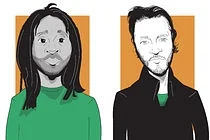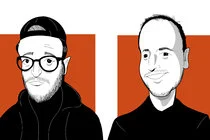Life
“I apologize for being so boring,” Mr. Offerman said. “I have to realize this fact every day, when I look into the mirror.”
“I think the part about this whole process that is probably most shocking to the non-Indian is the extent to which it’s successful,” Mr. Patel said. “And by success I mean, not only do they end up being married, but they end up being truly happy.”
“The irritation has less to do with 10 to 15 pounds and more to do with knowing I am losing control of my body.”
Water shot out with the force of a fire hydrant. Mr. Feldman, 57, put a hand against the opening, to no avail. “There was no way of stopping it,” he said. “So I did the very macho thing and started shouting for help.”
“I have to connect myself even more,” Mr. Chandler said. “I have a fear of not being connected, of suddenly wanting to bolt. The fear of saying, ‘See you later.’”
“I had a renewed sense of purpose, because I had finally cut out all the bad stuff,” Mr. Nartker said of the new job. “And since I made all those other changes, I had the motivation to push through and go after it. You have to take care of yourself.”
“It got to a point where even seeing a grown man in his mid-30s wearing a jersey with some other name on the back struck me as immature and odd,” Rob Jordan said. “You say, ‘Come on man, grow up.’”
“It’s like I’m trying to find a problem and she is not creating it,” Mr. Dorn said. “I want her to be excited when I give her something, and really overjoyed. And when she doesn’t respond like that, I ask her, ‘Am I in trouble?’ And she says: ‘Why would you think that way? Why would you be in trouble?’”
“I didn’t hate it with a burning passion,” Mr. Schickel, 26, said of his white-collar days, which he left in November 2015. “I was good at my job. I did very well. But it didn’t really excite me. The question was, ‘When I die, do I want to have spent 50 years of my life sitting in an office?’ The answer was no.”
No, it's not 'The Notebook.' It's real life. And it's terrifying and wonderful all at once.
“If you vote for Trump, I will divorce you and move to Canada,” she recalled telling him. He tried to laugh it off.
“The key thing to consider is that I am not a very good businessman,” he said. “I’m not really anything but a guy who was addicted to internet porn.”
“You’re like a stranger in the world at that point. Nobody has any expectations. Nobody knows your history. Nobody knows what they want you to do.”
"If you asked me 10 years ago if this was going to be my life, I would have slit my wrists."
“My passion for the last years has been my family,” Mr. Winterhalt said. “So I don’t know what I’m going to do as a job. I don’t have any idea. The world is mine, and that’s a great thing. Do I go back to school? I don’t know. That is a little scary for me.”
“Who do I call?” Mr. Choffel asked. “Everyone has kids. I know everybody’s in bed, so who do you call?”
This was my world now. My New York. My Brooklyn. By now I'd taken this route dozens of times. I knew where the stop was. And I knew my way back home.
In February 2002, a talented freelance journalist named Michael Finkel, who'd just been caught inventing a character in an article for The New York Times Magazine, got a telephone call. It wasn't one he expected.
Matthew Haines is not concerned about furniture — that is, to judge from his apartment on West 131st Street in Harlem.
They aren’t mourning the man. Not really. How could they? Mourners are gathering in Los Angeles and New York and elsewhere, weeping over the death of a man they never met, never spoke with, never had any intimate connection to. Yet in the end we knew very little about Jackson, and what we knew was dark and troubling. Hell, what we knew of him is damn right horrifying. You couldn’t love Michael Jackson–not the man.
I’d hurt the most decent man I’d ever known over a guest list to a hypothetical marriage to a nonexistent girl.



























In the footsteps of the murderer of Martin Luther King Jr.